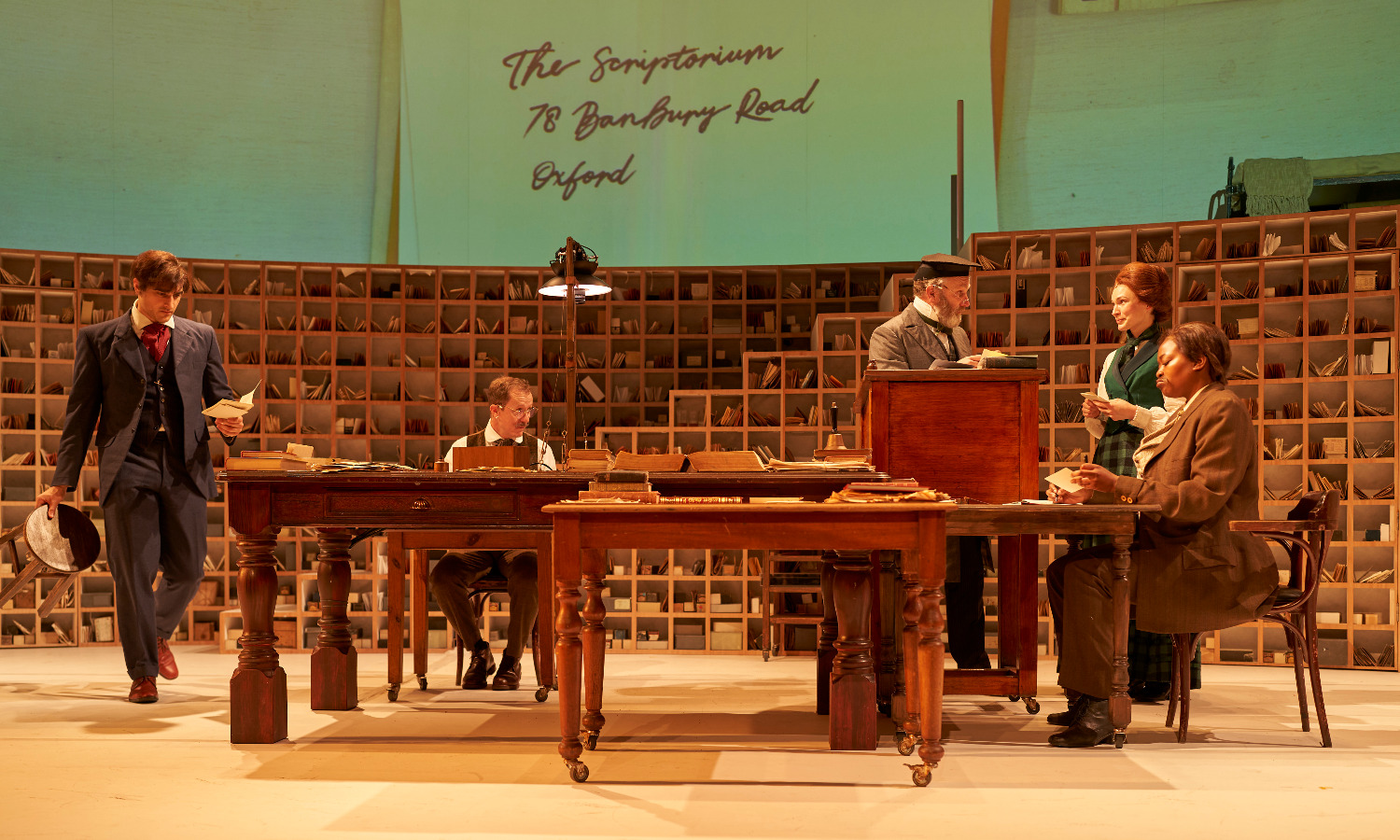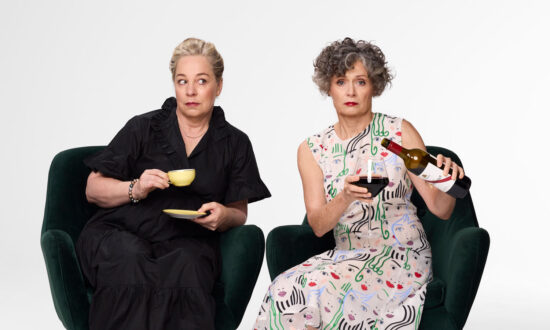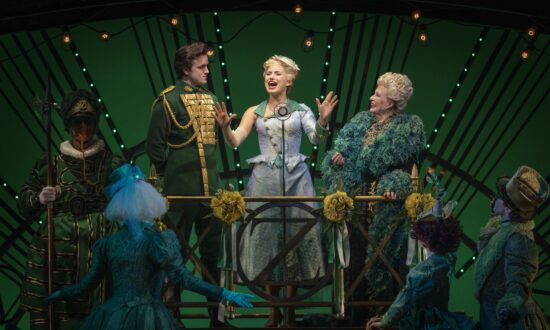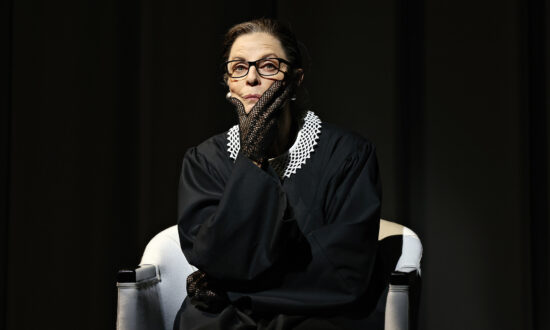In 2020, at the height of the pandemic, Adelaide Hills author Pip Williams did not have a launch for her debut novel, The Dictionary of Lost Words, and she certainly didn’t attend any writers’ festivals. Such was the way of our lockdown world, yet at a time when publishers were lamenting the industry’s pandemic plunge, the book burst forth with explosive sales, becoming an international phenomenon.
When first we imagined the child Esme on the page, day after day sitting under the table of the Scriptorium, now we can see it, brought to life by the collaborative efforts of the State Theatre Company of South Australia and the Sydney Theatre Company.
Motherless four-year-old Esme stays close to her father at all times, including while he toils away in a converted garden shed office with a team of lexicographers. It’s 1886 and the men are sorting through slips of paper, compiling the original Oxford English Dictionary, which will take many, many years to complete as it will contain every useful word imaginable.
But what of the words that relate to and/or are spoken of by common women, like bondmaid, a poorly paid domestic servant who will work for the rest of her life, and knackered, a word Esme’s own bondmaid, Lizzie, teaches her? As the men drop the slips of paper with the wasted words – some “superfluous to need” and, in the case of the aforementioned bondmaid, unintentionally lost – inquisitive Esme picks them up and later places them in her bondmaid’s travel trunk hidden under the bed.
Eventually the words will help fill her own book: The Dictionary of Lost Words. It’s an act of private defiance that sets Esme on a course for a lifetime of gendered protest.
Adapted by South Australia’s Verity Laughton in consultation with Williams, the script is empowering. Though the book’s focus was on an all-encompassing love of words that wound its way to a political thrust, the play is firmly grounded in the political and relies on Esme’s love of words as a constant backdrop.
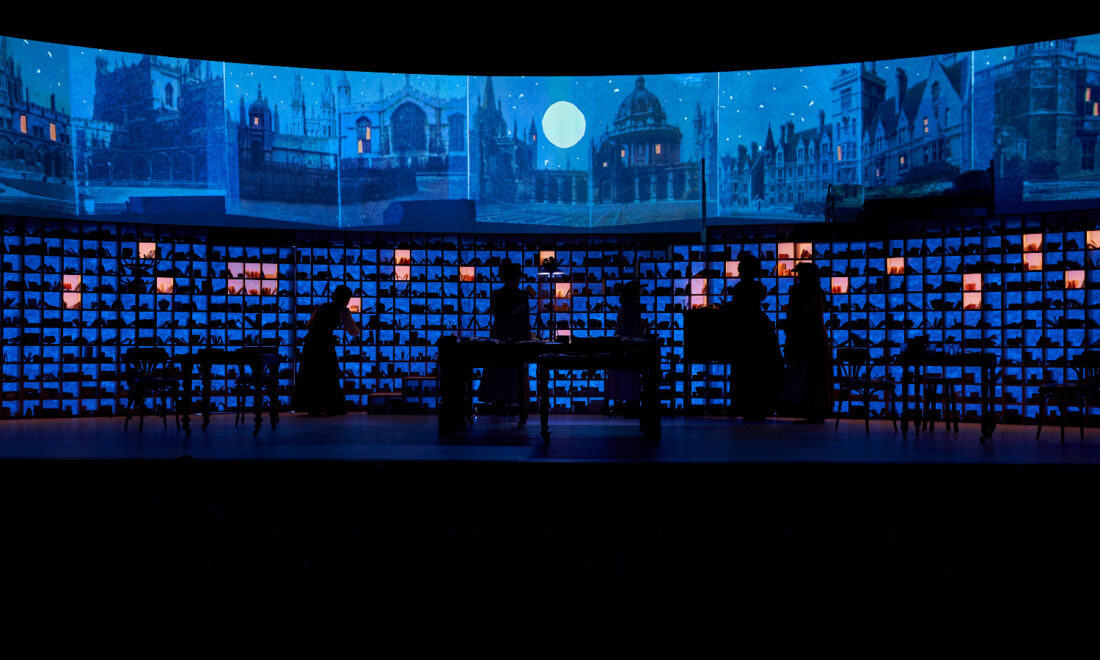
Directed by the prolific Jessica Arthur with an incredible set design by Jonathon Oxlade, we’re in the Scriptorium, where there are cubed shelves stuffed with paper, wooden chairs and tables, desks covered with thick books, a reading light, a hat stand to hold the bowlers of the men. Above that is a second level, offering alternative settings to the ‘Scrippy’. It’s an effective use of space that suggests Esme’s bedroom, the Oxford University Press and wartime France, and there is a screen backing it that projects information, such as dates and places, and, more intimately, what Esme sees on the desk in front of her. The screen also expresses mood through colour and waves, shows a close-up of the fear and joy of giving birth and the blacking-out of death.
Alongside the movement of the story, the acting is polished. Tilda Cobham-Hervey (who’s well-known for her role as Helen Reddy in I Am Woman) plays a fragile-looking, bolshy-thinking Esme, and Esme’s beloved Ditte is played movingly by Ksenja Logos, who also acts in the role of the bawdy, toothless Mabel, who teaches Esme words considered too vulgar for the men’s dictionary and provides her with the quotations needed to secure their authenticity: “They’re not used in polite society, but they’re important.”
But it’s Rachel Burke as Esme’s maid and friend Lizzy that shines in her broad and nurturing character: every scene with her is genuinely stirring.
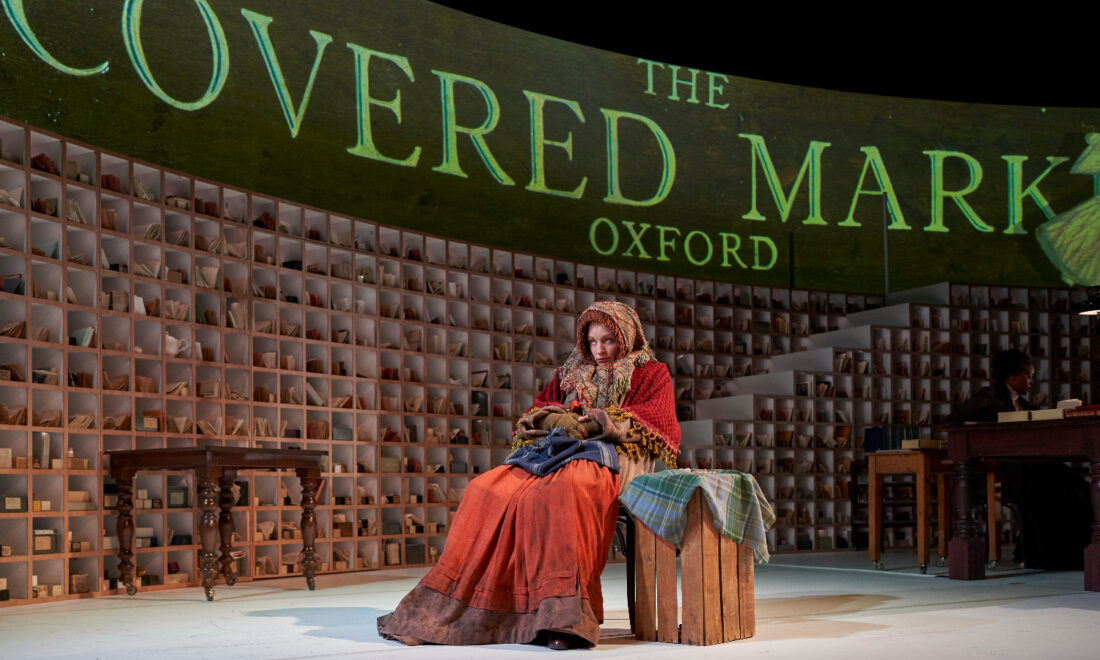
Ksenja Logos as Mabel. Photo: Sam Roberts
The play affirms that “a word can change its meaning depending on who’s saying it,” certainly a statement worth considering as we question the patriarchy and all the many books that have come of it. Think of the medical texts that first described the female sexual and reproductive system: hymen, fallopian tubes, the G-spot – all named by and after men. One can only dream of what Mabel would’ve come up with and what Esme would’ve documented if they’d had a say.
This is a fictional story with historical support created for today’s sensibility, and though it may play things a little safe and resist rising to lofty levels of profundity, it has a lot to say, and does so in a way that conveys great pride.
The Dictionary of Lost Words is playing at the Dunstan Playhouse until 14 October, with special dates for Audio Described Performances and Pre-Show Briefing for blind and low-vision patrons, and Captioned Performances for the hard of hearing.
Support local arts journalism
Your support will help us continue the important work of InReview in publishing free professional journalism that celebrates, interrogates and amplifies arts and culture in South Australia.
Donate Here
